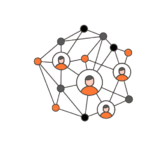
Beyond Courses and Certifications: The Essential Role of Mentoring in IT Career Development
Kristijan Pušić | March 4th, 2024
Mentoring consists of attending courses and, in some cases, passing certifications. Courses and certifications can’t replace mentoring.
All 3 terms relate to the process of learning and/or measuring the impact of that learning. Has the candidate learnt anything? Will they know how to use the newly acquired skills correctly? The recruitment process tries to determine how much a candidate knows about a particular subject. Having nice courses on your CV is helpful, but certainly not the most important thing an interviewer will find when reading. Certificates show a greater commitment to certain areas of expertise because there is some kind of validation of that knowledge. Certificates, unlike courses, have a measurement system at the end of the day, the candidate has to demonstrate a certain level of knowledge to get a certificate. But how do you know if the candidate has had a mentor in their career so far or not? These are some of the issues I will address in this article.
Courses are usually a series of videos with some additional reading and cover a wide range of topics. Courses have real-life mentors that you can follow later on LinkedIn or on their blogs.
Courses are a common way of gathering knowledge these days. It is part of every mentoring programme. Each of us takes a few courses in a year. Longer or shorter to refresh some memory or learn something new. The quality of the courses varies according to the quality of the material shared and the structure of the learning material. It is important to check the topics and exercises at the end of the course before choosing the right course to cover a topic. Check the background of the mentor, the comments and the age of the course. Some courses get out of date quickly and you may lose some time learning the subject you want to learn. Courses can’t evaluate someone’s knowledge, so they are only a learning tool in the whole process of acquiring new knowledge.
Certifications in certain areas of IT are a must. Entering certain niches such as Microsoft or Google or Amazon cloud technology projects is almost impossible without some level of certification.
For example, the AWS Certified Solutions Architect – Associate certification is an important milestone for cloud computing professionals, demonstrating a comprehensive understanding of AWS services and architecture principles. However, mentorship complements this certification by providing personalized guidance, practical insights, and ongoing support that bridges the gap between theoretical knowledge and its application in real-world scenarios. Through mentorship, individuals can not only apply their certified knowledge more effectively, but also continue to grow and adapt in the rapidly evolving cloud computing landscape.
In other areas of IT, certification is less used as a proof of knowledge and entry is much easier. IT companies themselves sometimes use passed certifications as a prerequisite for a skill change. A company gives itself the opportunity to measure its own developers and leaves it to an external certification to measure the developer’s knowledge. In a way, they are handing over a piece of their own corporate culture to an external assessment. Even worse is the expectation that the code quality problems will now be fixed because a developer has passed the certification. Well, not to put too fine a point on it, this is wrong. Even a perfect measurement system will not help much, because there is still a huge gap between the actual code quality of a project and passing a certification. They are in no way related.
The mentoring process includes both certifications and courses as and when they are needed in a developer’s career.
Mentoring goes beyond the limitations of courses and certifications, providing a tailored, experiential learning process that fosters both personal and professional growth. Mentoring in an IT company starts with the hiring process and evaluation of a new developer through a company competency matrix. The skills matrix and initial results are the contract between the company and the developer of where they are now and where they will be in the future. It is important to mentor developers in their career. The company’s best mentors are the new developers. A good question in the interview can be: what was the name of your 1st senior developer? There is a lot hidden in this question. Depending on the answer, you can easily see the rest of the interview. Having a good mentor early in your career will quickly change your future development.
Importance of mentoring versus merely relying on courses and certifications in IT, is a serious step back. Lets see the benefits on mentoring:
- Real-World Application: Mentoring offers practical, real-world experience that courses and certifications often lack. Mentors can provide insights into solving actual work-related problems, navigating workplace dynamics, and applying theoretical knowledge in practical scenarios.
- Mentor-Mentee Relationship: Mentors offer unique dynamics of the mentor-mentee relationship, including trust, mutual respect, and personalized guidance. This relationship enables the mentee to receive feedback tailored to their specific needs and learning style, which is crucial for effective development.
- Career Navigation and Advancement: Mentors play a critical role in career development, offering advice on career paths, networking opportunities, and strategies for professional growth. Unlike courses and certifications, mentors can provide nuanced guidance based on their own experiences and industry knowledge.
- Soft Skills Development: Mention the importance of soft skills in the IT industry, such as communication, teamwork, and leadership. Mentors can help develop these skills through ongoing interactions and role modeling, which are not typically addressed in traditional educational settings.
- Customized Learning Plans: Explain how mentors can help create customized learning plans that align with the mentee’s career goals, strengths, and areas for improvement. This personalized approach ensures that learning is relevant and aligned with the mentee’s aspirations and the organization’s needs.
- Continuous Feedback and Support: Highlight the continuous nature of feedback and support provided by mentors, which contrasts with the one-time assessment of certifications. This ongoing dialogue allows for real-time adjustments in learning strategies and career planning.
There are four types of mentors. Only all four together make up the perfect combination for a successful mentoring programme.
The developer’s mentoring continues with his technical mentor and regular feedback on the developer’s progress through the same competency matrix. Technical mentors are most common in IT, fortunately psychology gives us directions in this fine tuning of mentoring performance in an IT company. The second type of mentor is more related to the realization that there is a special kind of mentor in every geeky developer. A mentor-innovator.
New technologies are constantly emerging, making training and certification a normal part of any developer’s career. Mentor innovators are a must to keep the company’s momentum going. But if they are not focused, their mentoring skills will be wasted. This difference will have a significant impact on a company’s ability to have a mentor who can lead the mentee, or even the whole company, in a direction that is of interest to the company.
The motivational mentor is often overlooked, but plays an important role in differentiating between more technical or innovative mentor types. The lack of a motivational factor is easily remedied with HR staff stepping in to help. Don’t worry, although it’s a bit strange, most mentors can’t remember how hard it was for them to start their career. But easy now, your HR team can step in.
Finally, we have career mentors. We expect career mentors to help mentees with their career development and prepare them for a new role. Mentors can help with career planning, goal setting, professional development and networking. For example, for career mentoring we need Future, Convinced by Seeing, Goal Orientation, Focus on People, Focus on Systems, Breadth, Evolution and Alternatives. More in depth on this topic and a case study you can find here.
The Role of HR in Cultivating a Mentoring Culture
HR plays a key role in bringing together courses, certifications and mentoring into a cohesive career development framework. By identifying and nurturing mentors within the organization, HR ensures that every developer benefits from personalized guidance and support. In addition, by integrating psychological insights and methodologies, such as those provided by JobEQ tests, HR can enhance the effectiveness of mentoring by tailoring it to the unique needs and strengths of each individual.
So what does it take to have all 4 types of mentor? You can find out by taking the JobEQ tests on your IT development floor. Measure and you will see!
Psychology is still a science and has much to say on the subject of mentor measurement. Mentoring, supported by the foundational knowledge of courses and the validation of certifications, creates a robust framework for career development in IT. This holistic approach ensures that professionals are not only technically competent, but also well equipped to adapt, innovate and lead in an ever-changing technology landscape. As we continue to navigate the complexities of the IT industry, the value of a mentor – to guide, inspire and challenge – has never been more apparent. Together with the support of HR and a commitment to continuous learning, mentoring enables IT professionals to reach their full potential, benefiting both their personal growth and the broader organizational mission.
FAQ
How can organizations measure the success of their mentoring programs?
This question addresses the need for concrete metrics and indicators to evaluate the effectiveness of mentoring initiatives within IT companies. Focusing on outcomes such as improved job performance, career progression, and satisfaction among participants. Implementing performance measurement with DORA metrics is a good way to track whole company progress. Code coverage and code churn can also be helpful as metrics. Idea is to reduce time to competency level for new hires, increased skill upgrade periods, increasing project delivery speed, or improving code quality. Depends really what a company’s goals are.
What challenges do mentors face in the IT industry, and how can they be supported?
Matching the right mentor with the right mentee, and ensuring ongoing engagement, eventual time constraints are some of the challenges that mentors face. Support of HR with professional development for mentors themselves starts with meeting mentors with different skill sets or mentor types. Continues with regular check-ins with HR to discuss challenges, and creating a mentor community for sharing best practices and experiences.
How can mentoring be scaled in large IT organizations or for remote teams?
Again focus will be on performance measurement. Regular virtual meetups and workshops will maintain the sense of community and shared learning among remote teams. Mentors need to support each other. Keep in mind that healthy communication practices for the whole company also are important. A well-structured mentoring program should provide clear guidelines on how it operates, including the balance of leadership, roles, career choice process and expectations of both mentors and mentees. This will help mentees to set achievable real goals and focus on areas where they need to improve. Contact me for more information.
Related posts
- Navigating Challenges: Being a Good Technical Lead, part 5In previous articles, I have explained four essential skills for Technical Leads, they were leadership, mentorship, onboarding, and hiring.
- How to Efficiently Scale Your Startup’s Tech Stack for Maximum GrowthWhen scaling your IT startup, choosing the right tech stack is crucial to ensure efficiency, flexibility, and long-term growth.
- 9 Key Measures to Protect Digital Assets and Ensure Data IntegrityDigital transformation represents a significant shift in the way an IT company operates, impacting every aspect of the IT business from operations to customer engagement.
- 8 Cloud Transformation Strategies for Large EnterprisesMigrating legacy systems to the cloud is a critical move for large enterprises aiming to enhance flexibility, scalability, and efficiency of their software solutions.
- 7 Ways to Become A Better Software Engineer MentorContinuous learning and mentorship in IT has always been a cornerstone of a software developer’s career.
- 6 Tips for Building Effective Mentorship Relationships in Software EngineeringMentorship can be either formal or informal. Formal mentorship takes place within a structured mentoring program inside an IT organization.
Ready to Enrich Your Team?

Kristijan Pušić
IT consultant and Business developer
Our consultant is at your disposal from 9 AM to 5 PM CET working days from Monday to Friday for any additional questions.
Recent Posts
- How Brands Use AI to Track, Trace and Prove Their Sustainability Claims
- How AI Recognizes Waste: Smart Recycling Technologies in Action
- Rapid Hypothesis Testing for Driver Retention in Delivery Service
- How Setronica Created an AI Slack Bot, Part 3: Putting Our Bot to Work
- Building a Reliable Monthly Accrual Report: Overcoming Challenges and Implementing Solutions






